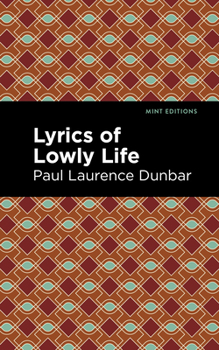Lyrics of a Lowly Life
Select Format
Select Condition 
Book Overview
Lyrics of Lowly Life (1896) is a collection of poems by African American author Paul Laurence Dunbar. Published while Dunbar was at a turning point in his career as one of the nation's leading black poets, Lyrics of Lowly Life combined his hugely successful volumes Oak and Ivy (1892) and Majors and Minors (1896), establishing his reputation as an artist with a powerful vision of faith and perseverance who sought to capture and examine the diversity of the African American experience. In "The Poet and His Song," Dunbar compares the art of poetry to tilling the soil, a slow and painstaking process requiring full commitment, body and soul, to the task at hand: "My days are never days of ease; / I till my ground and prune my trees. / When ripened gold is all the plain, / I put my sickle to the grain. / I labor hard, and toil and sweat, / While others dream within the dell; / But even while my brow is wet, / I sing my song, and all is well." For Dunbar, the reward is the song itself, both an act of labor and a celebration of life, emphasizing the role of the poet as not just a dreamer, but a doer. Throughout this collection, Dunbar explores the role of the poet in society, grounding each poem within his identity as a black man in America. In "Frederick Douglass," an elegy written for the occasion of the great man's passing, Dunbar makes clear the consequences of pride and defiance in a nation built by slaves: "He dared the lightning in the lightning's track, / And answered thunder with his thunder back."
Since our inception in 2020, Mint Editions has kept sustainability and innovation at the forefront of our mission. Each and every Mint Edition title gets a fresh, professionally typeset manuscript and a dazzling new cover, all while maintaining the integrity of the original book.
With thousands of titles in our collection, we aim to spotlight diverse public domain works to help them find modern audiences. Mint Editions celebrates a breadth of literary works, curated from both canonical and overlooked classics from writers around the globe.





